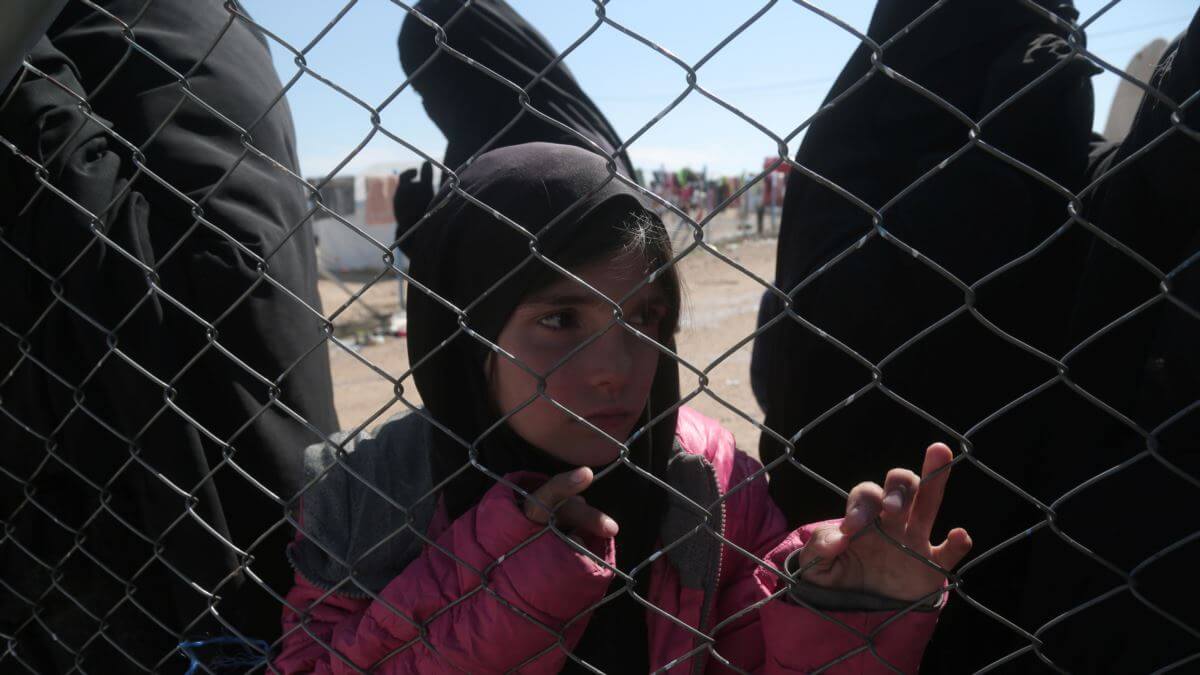Following in the footsteps of Kyrgyzstan, Tajikistan is preparing to repatriate hundreds of family members of Islamic State (IS) fighters who are being held at prisons and refugee camps in Kurdish-controlled parts of Syria.
Tajik officials told RFE/RL in a statement that the “first group from among about 800 Tajiks stranded in the camps will be repatriated within weeks.”
Earlier this month, Tajikistan’s ambassador to Kuwait, Zubaidullo Zubaidzoda, visited the Al-Hawl and Al-Roj camps in northeastern Syria to meet with hundreds of Tajik women and their children who had earlier fled to Syria to support IS fighters. During his visit, Zubaidzoda met the Kurdish authorities who were in charge of the camps and gained their permission to extradite the Tajik origin residents from the camps.
Additionally, he also met with the Syrian government officials and representatives of the International Federation of Red Cross and Red Crescent Societies to discuss Dushanbe’s deportation plans. Zubaidzoda registered the names of about 200 Tajik nationals who will be returning home under the “voluntary repatriation program”; though he also mentioned that not all Tajik women want to return back to their home country, as they fear being arrested upon their return.
Since 2015, a large number of Tajiks left the predominantly Muslim Central Asian country to join IS militants in Syria and Iraq. The Islamic State (IS), also known as ISIL or Daesh, emerged from the remnants of al Qaeda in Iraq in 2004. It faded into obscurity for several years after an influx of U.S. troops to Iraq in 2007, but began to reemerge in 2011. The group solidified its standing in the region after it launched an offensive on Mosul and Tikrit in June 2014. This paved the way for ISIS’ expansion In 2015, when it established a network of affiliates in at least eight other countries, including Tajikistan Since then, around 2000 Tajiks have joined IS forces in Iraq, Syria, and Afghanistan. However, in 2019, Daesh lost the war in Syria, leaving many families of IS fighters in prisons and refugee camps.
Starting in 2019, Tajikistan began repatriating dozens of children from Iraq, where their Tajik mothers were jailed for being members of the extremist group. On their return, the repatriated children were made to go through a carefully designed rehabilitation process at several closed facilities near Dushanbe. Relatives were allowed to meet their family members; however, short visits were suspended after the outbreak of the pandemic.
Furthermore, teachers, psychologists, and other specialists have been appointed by the Tajik authorities to help those children adapt to their new lives in Tajikistan. Many returnees take part in the Tajik government’s anti-terrorism campaign, warning young people and their parents about the dangers of joining extremist groups. However, as the coronavirus pandemic hit the world in 2020, the program was halted due to a ban on international travel. However, Tajikistan is expected to start admitting families, this time from Syria, in the coming weeks.
Observers and analysts predict that the repatriation of family members of Daesh fighters will bring its own threats and complexities. The extremist ideologies can threaten the national security of the country, and can also lead to ideological clashes. The late July 2018 attack in Tajikistan is an example of one just peril that the Tajik government should be prepared for in the future.
Tajikistan Plans to Bring Back Families Of Islamic State Fighters From Camps In Syria
According to government officials, the first group of Tajik refugees will be repatriated within a few weeks from now.
December 15, 2020

SOURCE: RFE/RL
